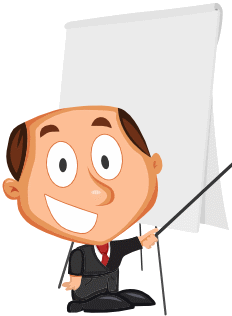
Sales is an art. Part assertive, part passive, if you balance the persuasion and charisma of a great salesperson, you'll be able to sell ketchup popsicles to a woman in white gloves on the 4th of July (although something slightly more practical is recommended). Read on to discover how to cultivate trustworthiness, an assertive presence, and an optimistic outlook on your sales.
Put the Customer First
You can't sell anyone anything if they don't trust you. Convincing someone that they need something you're selling requires that you balance sincerity with your desire to make the sale, being assertive, firm, and honest. If they don't trust you, they're less willing to make an intelligent buying decision.
Always be a person of integrity, because they will be able to see if you are not. Always remember, you are here to serve and help your customer.
Empathize
Find out what your customer really wants and why they want it. People buy "things" as a means to an end. Understanding your customer's desires and adopting them yourself will make you a great salesman.
Allow your customer to lead interactions, and ask questions to determine their desires. If a customer says they want a suit, ask "What's the occasion?" Selling a suit to someone going to a funeral is a lot different than selling to someone who is celebrating a recent promotion.
If a customer expresses interest in a particular item, ask what it is they like about it. Allow them to choose the product that they feel good about, getting to know your customer and their taste, and uncovering their real motivation for buying.
Listen to everything your customer says carefully, and listen to exactly how they say it. This is your fire power when presenting the product as a solution, and you want to present the solution back to them the same way they presented the need to you.
Be an Expert in Your Product

Know everything there is to know about your product, and your competitors products, so that you can justify to your customer why your recommended product is the right one for them. If you're selling basketball shoes, learn which players wear what shoes, what styles are collectible, and some of the history of the shoes. Likewise, learn all the technical details about sizing, comfort, and care for the product.
Follow Up
If you really want to be a great salesman, go the extra mile. Write down the names and contact info of your customers, and follow up with a brief call or note to make sure they are 100% happy with their purchase. This is how you turn customers into raving fans who will return to you in the future. This is how you get referrals from your customers, and promotions from your employer.
Look the Part
There's no particular style - a car salesman will probably dress somewhat differently than a salesperson at a guitar shop - but you need to figure out how to look as appropriate and approachable as possible. Be clean, appropriately groomed, and friendly.
Anticipate Objections
Pay close attention to your customers reactions. Facial expressions and body language can be a big "tell" in the customer's attitude. As you pitch the product to them, remember that you are there to sell whatever is going to make the customer feel really good about their purchase. Guessing what part of the product or price the customer is objecting to will help you respond tactfully and persuasively.
If a particular product seems to turn off a customer, acknowledge it rather than starting to argue for the product. You might objectively name some of its merits while justifying the customer's hesitation: "It is more expensive than the others, you're right. The hand-stitching takes a lot more time to complete, but it results in much more durable shoe."
Be Logical
If you're working on commission, it can be tempting to always up-sell, or try to get customers interested in the most expensive items. But trying to up-sell a big screen plasma TV to someone living in a dorm room that isn't big enough for it is likely to put your customer off of your sales style. Balance your desire to make a sale with what product makes sense for the customer.
Ask for the Sale
If the customer is having a difficult time making the decision, it's ok to do a little pushing. Trust that you have suggested the best item and ask something like "Would you like me to bring this up to the check out stand for you while you continue your shopping?"
Always try to close. If you never ask, you'll never get the sale. Try to find common ground with the customer to create rapport (e.g. sports, family, school).
Increase Your Units Per Transaction
After you confirm a sale, make the case for add-ons to up your total sales. If you've just sold a printer, mention some deals you're running on ink cartridges or reams of paper. Frame it as a money and stress-saving measure for them: "You'll need these eventually and this way you won't have to worry about it."
Tailor your pitch to the customer. People like different things - all the bells and whistles are just noise unless they're ringing their tune.
Forget Bad Sales
Spending lots of time on a sale that falls through can be frustrating and discouraging, but learning to put bad sales behind you and quickly approach new opportunities afresh is the best way to become a more successful salesperson. Treat each failed sale as practice. What did you learn from it?
Stay Focused on Your Own Sales
Some workplaces try to stimulate sales by encouraging competition among the sales staff, posting numbers for the week or the month. While this can be a friendly way of selling enthusiastically, it can also be discouraging if you constantly compare yourself to other salespeople. Celebrate if you do sell a lot, but don't make that your goal. Treat work as work. Fill your free time with other hobbies to avoid dwelling on making sales.
Keep Busy
The more sales you attempt, the easier it will go. It'll be much easier to get past small failures and little setbacks and will keep you honing your craft. If you're making calls or roving the sales floor, the day will likewise go a lot faster the more time you spend selling.
Blame Nobody
Whatever happens, avoid placing blame anywhere. It's ultimately the customer's decision whether or not to buy something, so don't treat it as a failure on your part if they choose not to. Think of yourself as a counsellor in a transaction. Make your suggestions, be as helpful as possible, and move on when the deal is done, successful or not.
Article source: wikiHow wikiHow is a group effort to create a great resource: the world's largest free how to manual. wikiHow articles help people solve their everyday problems. wikiHow licenses all content under a Creative Commons License. The license allows wikiHow content to be used freely for noncommercial purposes. The Creative Commons License also allows for the creation of derivative works.
More How to Choose a Career Information:
• Cardiovascular Technologists and Technicians - Career Opportunities
• Is 3D Animation the Right Career Choice For You?
• Heavy Vehicle Service Technicians and Mechanics
• Do I Need A Degree To Be A Fashion Designer?
• Becoming a Systems Administrator - A Realistic Look of What it Takes to Get There and Succeed!
• Duties And Responsibilities of Medical Assistants
• Massage Therapy Careers - Three Options
• Living a Life You Love
• Cooking Careers 101 - How to Become a Hotel Chef
• Food Service Career


